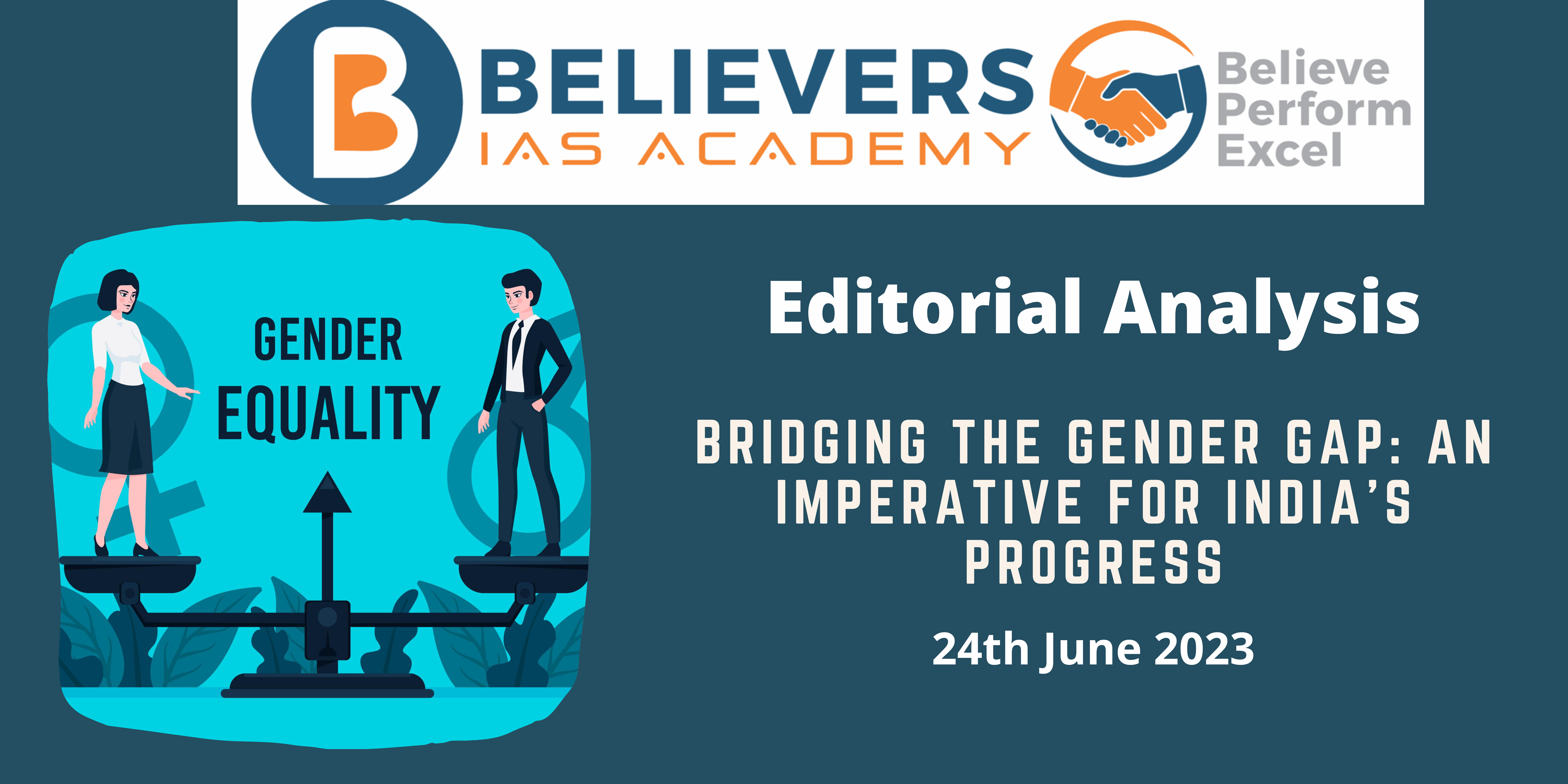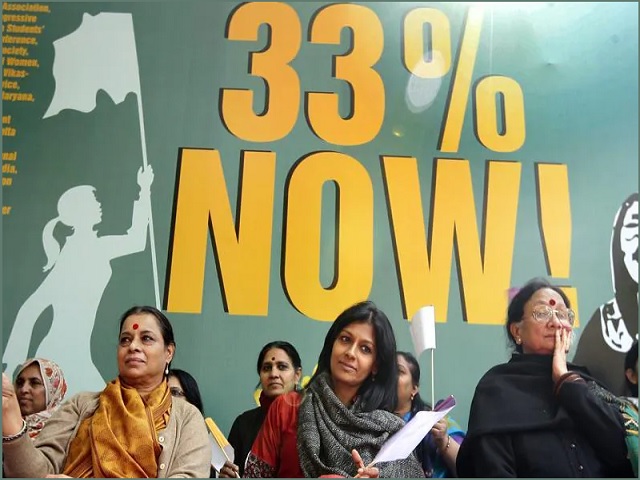Bridging the Gender Gap: An Imperative for India’s Progress
Context:
India’s journey towards reducing gender disparities has shown some progress, evident in its improved ranking in the annual Gender Gap Report, 2023. While education and political empowerment have witnessed positive strides, challenges persist in economic participation and opportunity, health and survival, and overall gender equality. This article delves into these dimensions, highlighting the significance of the Women’s Reservation Bill and proposing a comprehensive way forward to bridge the gender gap in India.
Relevance:
GS-02-(Issues related to Children) (Issues related to women)
Prelims:
- Gender Gap Report, 2023
- Gender Parity
- World Economic Forum
Mains Questions:
- Analyze the significance of the Women’s Reservation Bill in enhancing women’s participation in politics and suggest measures to expedite its implementation. (250 words)
Dimensions of the Article:
- Economic Participation and Opportunity.
- Health and Survival.
- Political Empowerment.
Economic Participation and Opportunity
- India’s progress in providing equal access to economic participation and opportunity has been slow, with a parity rate of less than 40%. Although there have been positive developments in wage and income parity, the representation of women in senior positions and technical roles has regrettably declined.
- Tackling this issue demands concerted efforts to promote gender-inclusive hiring practices, offer skill development opportunities, and eliminate gender biases in the workplace.
- Additionally, policies supporting affordable childcare and flexible work arrangements can empower women to strike a balance between their professional and domestic responsibilities.
Health and Survival
- Despite recent improvements in the sex ratio at birth, India’s performance in health and survival remains a concern. Ensuring access to quality education and providing employment opportunities are pivotal in enhancing overall development indices and breaking the cycle of early marriages that often lead to poor maternal and child health.
- Empowering girls with job-assured skills and facilitating their access to education not only improves their well-being but also contributes to the nation’s progress.
- Furthermore, addressing deeply ingrained cultural and patriarchal norms while prioritizing women’s safety is vital in fostering their active participation in the workforce.
Political Empowerment
- India has made commendable strides in political empowerment, with women’s representation in local governance surpassing 40%. However, there is still significant room for improvement at the national level.
- The long-pending Women’s Reservation Bill, introduced in 1996, proposes reserving 33% of seats in the Lok Sabha and State Assemblies for women. Enacting this bill would provide a substantial boost to women’s political participation, ensuring their voices are heard in shaping policy decisions.
- The Parliament must prioritize the passage of this crucial legislation to bridge the gender gap in political representation.
Way Forward
Bridging the gender gap in India requires a comprehensive and multifaceted approach:
- Strengthening educational opportunities for girls and ensuring equitable access to quality education across the country.
- Promoting gender-inclusive policies and practices in workplaces, such as implementing flexible work arrangements and actively combating gender biases.
- Urgently implementing the Women’s Reservation Bill to enhance women’s political representation at all levels.
- Creating a safe and supportive environment that empowers women and challenges prevailing patriarchal and cultural norms.
- Encouraging meaningful public-private partnerships to provide skill development programs and job opportunities tailored for women.
Conclusion
India’s progress in reducing gender disparities, as indicated in the Gender Gap Report, 2023, is undoubtedly a step in the right direction. However, achieving true gender equality requires continued efforts and a focus on economic participation, health and survival, and political empowerment. By empowering women and ensuring their full and equal participation in all spheres of society, India can unlock its true potential for sustainable growth and development.





